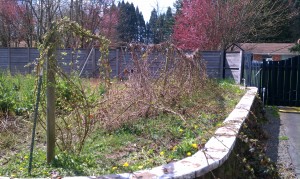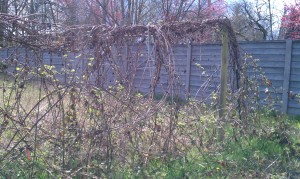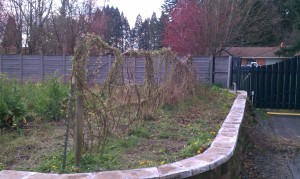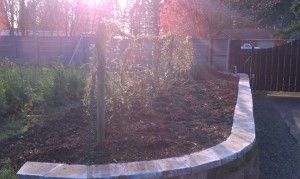We have had a break in the rain the past few days. It is still way too wet to cultivate the gardens but it is was great for mowing and weeding. I also got moving on the perimeter field screen project. I worked out a deal with a local nurseryman to plant fifty, twelve foot tall Austrian Pine trees along the frontage of the the road in our south field. Eventually, I want to plant woods all the way around the perimeter of the farm as a visual and noise barrier as well as for protection from drift of airborne pollen or other contaminants. This is part of our Certified Naturally Grown farm plan.
My Dad mowed the field in the area where the trees are going while I measured out and staked the tree locations. It took a couple of hours to do this prep work and it is now 2 p.m. Hopefully the trees and planting crew will be here soon.
The next thing I have to do once they are in the ground is to haul off the 50 big piles of soil as a result of digging the holes. I have some low spots around that I will fill in, some bermed flower beds that I will create near the farm entry, and the rest I will use around the area I have been preparing for a pond.
After the dirt is moved, I will have to run water out to that area of the farm as I will have to keep the trees well watered throughout the summer. It will be a lot of time and money going into this project, but the end result will be awesome.
Right now I am heading out to start potting up tomato plants. A task that I have needed to do for days now but keep having other priorities supercede.
Oh, and if you are wondering how I have the time to do all of these farm related tasks, it is because we have added two full time and two part time folks to help Denise do all of the Victory Seed Company order work. I do my part with the seed work – printing orders, printing packets, inventory management tasks, book keeping tasks, customer correspondence, etc. – after it gets dark outside and have been typically heading into the house at about 1 a.m. every day.





